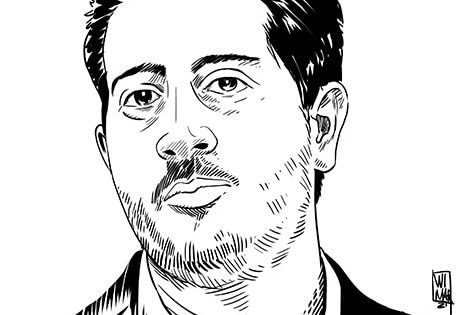(RSF/IFEX) – In a letter to Minister of the Interior Abelardo Colomé Ibarra, RSF protested the harassment of Milagros Beaton and Juan Carlos Garcell, director and reporter, respectively, for the Eastern Free Press Agency (Agencia de Prensa Libre Oriental, APLO), based in Santiago de Cuba (in the island’s far eastern region). The organisation asked the […]
(RSF/IFEX) – In a letter to Minister of the Interior Abelardo Colomé Ibarra, RSF protested the harassment of Milagros Beaton and Juan Carlos Garcell, director and reporter, respectively, for the Eastern Free Press Agency (Agencia de Prensa Libre Oriental, APLO), based in Santiago de Cuba (in the island’s far eastern region). The organisation asked the minister to “put an end to the pressure exerted on the APLO’s members by state security” and to “recognise the news agency as a legal entity.” “The state’s monopoly on information is contrary to Cubans’ right to be informed,” stated an indignant Robert Ménard, RSF’s secretary-general. He recalled that Beaton is the third APLO director since May 2000, as her two predecessors were forced to go into exile after facing strong pressure from the authorities.
According to the information collected by RSF, on 29 August 2001, Beaton, director of the APLO news agency, based in Santiago de Cuba, was summoned by state security, together with her two daughters, who are 10 and 13 years old. During the interrogation, the police officers promised to obtain a permit for her so she could leave the country and visit her husband, who is in exile in the United States. In exchange, she would have to agree to stop publishing articles on the Florida-based website www.cubanet.org, hand over her fax machine to the authorities and dissolve the news agency. Beaton is a doctor and cannot leave Cuba because of a law that prohibits members of the profession from emigrating. The APLO is the only independent press agency based in Santiago de Cuba, the country’s second-largest city.
Four days earlier, APLO reporter Garcell was attacked by a police officer who insulted and beat him for no apparent reason. On 25 July, he was arrested by three police officers, including the one who would subsequently attack him, and a number of his personal effects were confiscated. He was arrested five times during 2000. In May 1999, one of his colleagues, Manuel Antonio González Castellanos, correspondent for the Cuba Press agency in Holguín (eastern Cuba), was sentenced to thirty-one months in prison, for insulting (“desacato”) President Castro. During an altercation provoked by three police officers, the journalist accused Castro of being personally responsible for the harassment he was facing (see IFEX alerts of 26, 13 and 12 March 2001, 25 July and 28 June 2000, 22 October, 17 June, 19 May and 2 March 1999 and 16 and 6 October 1998).
Beaton is the third APLO director in less than eighteen months. In May 2000, Santiago Santana, her predecessor, felt obliged to leave the island after being subjected to repeated pressure by state security (political police). Luis Alberto Rivera Leyva, who replaced him, left Cuba on 31 July 2001. He was arrested four times in 2000. He was persecuted for condemning the state security’s methods, and later was given an offer to have all pending charges against him dropped if he agreed to stop working as a journalist. The political police also tried to compromise him by offering him certain advantages in exchange for his condemnation of other independent journalists. “All the media can play a role in impeding our work,” explained Rivera Leyva in a February 2001 article published on RSF’s website.
In Cuba, where the Constitution stipulates that “freedom of expression and the press” must “conform to the objectives of a socialist country,” only the governmental press is authorised. Some 100 independent journalists, grouped into about 20 news agencies that are not recognised by the state, are subject to constant harassment. Since 1995, about fifty journalists have had to leave the island. Journalists who work in the provinces are isolated and more vulnerable to repression.


